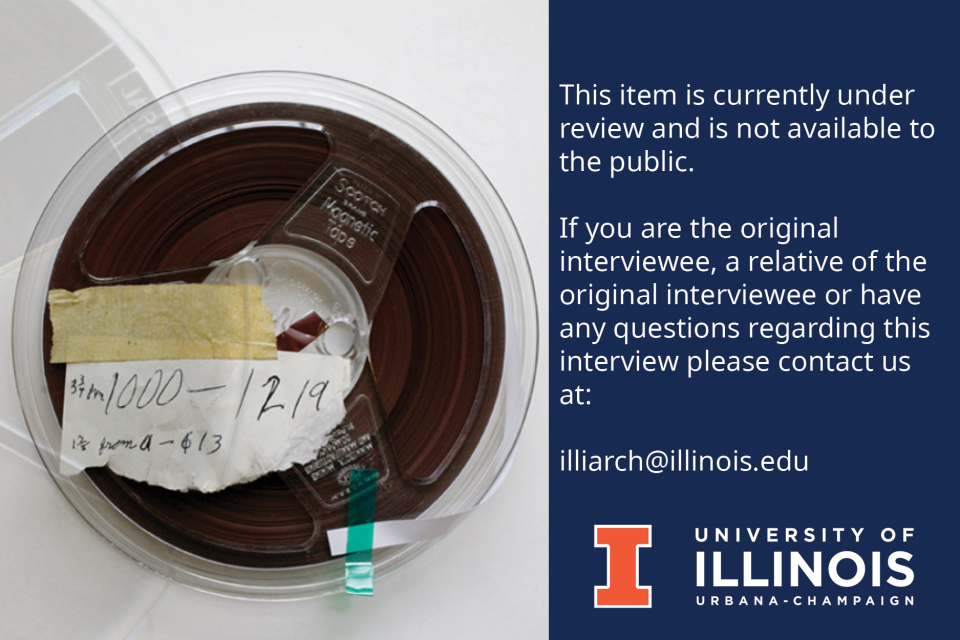Description:
SIDE A: Two Oral history interviews and field notes including audio recordings and transcripts:
- Oral history group interview with staff of the Hopi Action office (Vernon Masayesva, Alf Sekakuku, Gary Thomas) (Aug 23, 1967) including an audio recording and transcript relating to education; child rearing; Hopi adjustment to modern world; goals for Native Americans; B.I.A.; clash of young and old; tribal politics; religion; nature; ceremony; crafts; termination; Navajos; leadership; commodities; economics; employment and land use. [Some individuals are given names that may be pseudonyms: Ray, Mitch, John and Ed. Although field worker notes Hopi Action staff: Vernon Masayesva, Alf Sekakuku, Gary Thomas in a separate report, only “Vernon” appears in the transcript and “Hopi Action” is not noted in the transcript.]
- Oral history interview with white business entrepreneur, Frank Carson (Sept 3, 1967), including an audio recording relating to tourism; recreation; reservation planning; material improvements; employment by the Navajo Nation; Navajo tribal politics; Hopi tribal politics; Hopi council; alcohol; hippies; Hopi crafts; trading posts and unemployment.
- Field notes by David and Donna Eyde (Aug 22–26, 1967) including an audio recording relating to visit to Hopi reservation and events of Sept 4 in Winslow, AZ.
SIDE B: Continuance of oral history interview with Emory Sekaquaptewa (Sept 4, 1967, Session 4 of 4) including an audio recording and transcript relating to early life; Hopi philosophy, history, council, academic and fictional literature; tradition and culture preservation; ceremonies and religion; schooling; youth; social structure; intertribal interactions; family and social problems; material conditions; state and federal government; community organization; economy; industry; land issues; reservation development; legal issues; language and craft.
